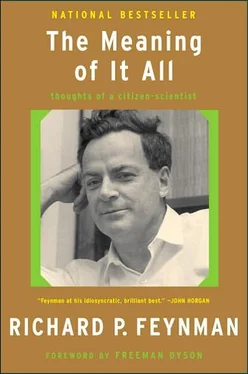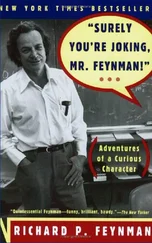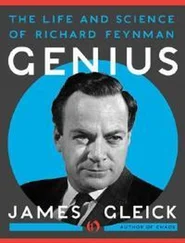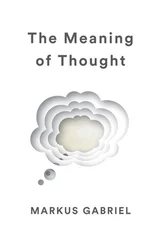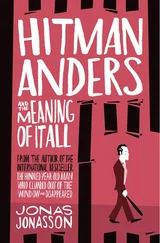I’ll give another example of the same thing. I was in Atlantic City, and I went into one of these—well, it was sort of a store. There were a lot of seats, and people were sitting there listening to a man speaking. And he was very interesting. He knew all about food, and he was talking about nutrition, different things. I remember several of the important statements which he made, such as “even worms won’t eat white flour.” That kind of stuff. It was good. It was interesting. It was true—maybe it wasn’t true about the worms, but it was good stuff about proteins and so on. And then he went on and described the Federal Pure Food and Drug Act, and he explained how it protects you. He explained that on every product that claims to be a good health food that’s supposed to help you with minerals and this and that, there must be a label on the bottle which tells exactly what’s in it, what it does, and all claims must be explicit, so that if it’s wrong, so on and so on. He gives them everything. I said, “How is he going to make any money? Out come the bottles. It comes out, finally, that he sells this special health food, of course, in a brownish bottle. And it just so happens that he has just come in, and he’s been in a hurry, and he hasn’t had time to put the labels on. And here are the labels that belong on the bottles, and here are the bottles, and he’s in a hurry to sell them, and he gives you the bottle, and you stick it on yourself. That man had courage. He first explained what to do, what to worry about, and then he went ahead and did it.
I found another lecture which was somewhat analogous to that one. And that was the second Danz lecture given by myself. I started out by pointing out that things were completely unscientific, that things were uncertain, particularly in political matters, and that there were the two nations, Russia and the United States, at odds with each other. And then by some mystic hocus-pocus it came out that we were the good guys and they were the bad guys. Yet, at the beginning, there was no way to decide which was the better of the two. In fact, that was the main point of the lecture. So by some sort of magic I produced some kind of relative certainty out of uncertainty. I told you about the bottle with the labels, and then I came out on the other end with a label on my bottle. How did I do it? You have to think about it a little bit. One thing, of course, that we can be certain of, once we’re uncertain, and that is that we are uncertain. Somebody says “No, maybe I’m sure.” Actually, though, the gimmick in that particular lecture, the weak point in the whole thing, the thing that requires further development and study is this one: I made an impassioned plea for the idea that it’s good to have an open channel, that there’s value in uncertainty, that it’s more important to permit us to discover new things, rather than to choose a solution that we now make up—that to choose a solution, no matter how we choose it now is to choose a much worse thing than what we would get if we waited and worked things out. And that’s where I made the choice, and I am not sure of that choice. Okay. I have now destroyed authority.
Associated with these problems of lack of information and so forth, but particularly lack of information, there are a number of phenomena that are more serious, I believe, than astrology.
I, in preparation for this lecture, investigated something that was in my town, in the shopping center. There was a store with a flag in front. And it’s the Americanism Center, Altadena Americanism Center. And so I went into the Americanism Center to find out what it is, and it’s a volunteer organization. And on the front outside, there is a Constitution and the Bill of Rights and so on, and a letter which explains their purpose, which is to maintain rights and so on, all in accordance with the Constitution and the Bill of Rights and so on. That’s the general idea. What they do in there is simply educative. They have books that people could buy on the various subjects that help to teach the ideas of citizenship and so on, and they have, among other books, also Congressional records, pamphlets on Congressional investigations and so on, so that people who are studying these problems can read them. They have study groups which meet at night, and so on. So, being interested in rights for people, I asked, since I said I didn’t know very much about it, I would like a book on the problem of the freedom of the Negroes to vote in the South. There was nothing. Yes, there was. There was one thing which turned up later, two things which I saw out of the corner of my eye. One was what went on in Mississippi according to the Oxford city fathers, and the other was a little pamphlet called “The National Association for the Advancement of Colored People and Communism.”
So I discussed it at some greater length to discover what was going on and talked to the lady for a while, and she explained among other things (we talked about many things—we did this on a friendly basis, you will be surprised to hear) that she was not a member of the Birch Society but there was something that you could say for the Birch Society, she saw some movie about it and so on, and there was something that she could say for it. You’re | not a fence sitter when you’re in the Birch Society. At least you know what you’re for, because you don’t have to join it if you don’t want to, and this is what Mr. Welch said, and this is the way the Birch Society is, and if you believe in this then you join, and if you don’t believe in this then you shouldn’t join. It sounds just like the Communist Party. It’s all very well if they have no power. But if they have power, it’s a completely different situation. I tried to explain to her that this is not the kind of freedom that was being talked about, that in any organization there ought to be the possibility of discussion. That fence sitting is an art, and it’s difficult, and it’s important to do, rather than to go headlong in one direction or the other. Its just better to have action, isn’t it, than to sit on the fence? Not if you’re not sure which way to go, it isn’t.
So I bought a couple of things there, just at random that they had. One of the things was called “The Dan Smoot Report”—it’s a good name—and it talked about the Constitution, and a general idea I’ll outline: that the Constitution was right the way it was written in the first place. And all the modifications that have come in are just the mistakes. Fundamentalists, only not in the Bible but in the Constitution. And then it goes on to give the ratings of Congressmen in votes, how they voted. And it said, very specifically and after explaining about their ideas, “The following give the ratings of the congressmen and senators with regard to whether they vote for or against the Constitution.” Mind you that these ratings are not just an opinion, but they are based on fact. They are a matter of voting record. Fact. There’s no opinion at all. It’s just the voting record, and, of course, each item is either for or against the Constitution. Naturally. Medicare is against the Constitution, and so on. I tried to explain that they violate their own principles. According to the Constitution there are supposed to be votes. It isn’t supposed to be automatically determinable ahead of time on each one of the items what’s right and what’s wrong. Otherwise there wouldn’t be the bother to invent the Senate to have the votes. As long as you have the votes at all, then the purpose of the votes is to try to make up your mind which is the way to go. And it isn’t possible for somebody to determine by fact ahead of time what is the situation. It violates its own principle.
It starts out all right, with the good, and love, and Christ, and so on, and it builds itself up until it’s afraid of an enemy. And then it forgets its original idea. It turns itself inside out and becomes absolutely contrary to the beginning. I believe that the people who start some of these things, especially the volunteer ladies of Altadena, have a good heart and understand a little bit that it’s good, the Constitution, and so on, but they are led astray in the system of the thing. How, I can’t exactly get at, and what to do to keep from doing this, I don’t exactly know.
Читать дальше
